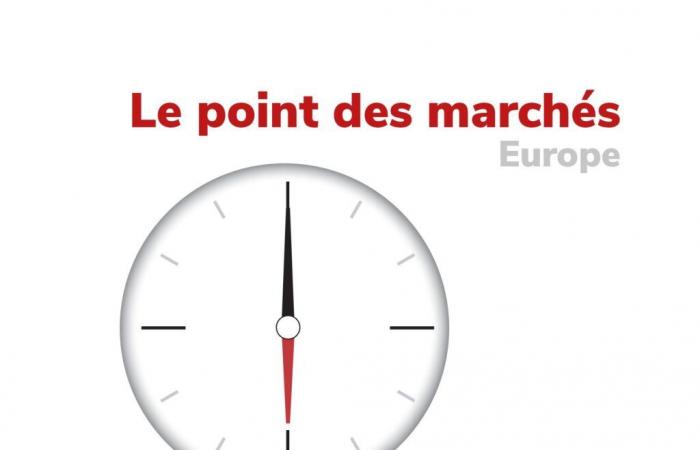Paris finished up 0.20%, Frankfurt 0.69% and Milan 0.93%. London, the only major stock market on the continent in the red, fell by 0.28%. In Zurich, the S MI nibbles 0.01%.
World stock markets remain generally in decline on Tuesday, on the eve of the publication of the consumer price index in the United States for December, in a context of growing fears of a rebound in inflation.
In Europe, Paris finished up 0.20%, Frankfurt 0.69% and Milan 0.93%. London, the only major stock market on the continent in the red, fell 0.28%. In Zurich, the S MI nibbled 0.01%.
On Wall Street, around 4:50 p.m. GMT, the Dow Jones lost 0.17%, the Nasdaq index 0.44% and the broader S&P 500 index 0.33%.
“Overall, the session is very calm,” comments David Kruk, head of trading at La Financière de l’Echiquier, interviewed by AFP. “The publication of the consumer price index (CPI) in the United States”, expected on Wednesday, “will be decisive”, he adds.
Investors have feared for several days a rebound in inflation in the world’s largest economy, which would push the Federal Reserve (Fed) to put the brakes on its monetary easing policy.
This pessimistic mood has slowed down the stock markets in recent days, and caused interest rates on government loans on the bond markets to soar.
In this context, around 4:50 p.m. GMT, the 2-year American interest rate, the most sensitive to monetary policy, relaxed somewhat to 4.36%, compared to 4.38% at Monday’s close, and the yield to 10 years reached 4.79%, up slightly (+0.01 point)
The ten-year German rate, a benchmark in Europe, reached 2.64%, compared to 2.61% the day before.
Investors got a taste of inflation on Tuesday, with the publication of the producer price index in the United States, which rose 3.3% year-on-year in December, slightly less than the 3.5% anticipated by the consensus of analysts cited by Bloomberg.
This indicator was well received at the start of the afternoon, causing a rise in the main stock indices, before the markets once again gave in to a wait-and-see attitude.
In Europe particularly, markets were relieved by information from the Bloomberg agency according to which President-elect Donald Trump’s economic team would consider very gradually increasing customs duties month after month, as negotiating leverage.
During the American presidential campaign, Mr. Trump indicated that he wanted to impose 10 to 20% customs duties on all products entering the United States, and even up to 60% or even 100% on those coming from China.
In this context, values in the European automotive sector, which is particularly exposed, were generally on the rise. French equipment manufacturers OPMobility (+7.10% in Paris), Michelin (+2.72%) and Valeo (+5.47%) experienced strong momentum, as did, elsewhere in Europe, Volkswagen (+1.08%). % in Frankfurt) and Volvo (+4.96% in Stockholm).
Still, “investors should remain feverish at least until the inauguration and the first announcements” of the future American president, warns David Kruk.
JD Sports on sale
The British sports clothing and accessories group JD Sports Fashion fell by 6.81% in London, after downgrading its annual result forecast, blaming “a difficult market”.
Lindt saluted
The chocolatier Lindt & Sprüngli revealed on Tuesday a turnover up 5.1% for the 2024 financial year, to 5.47 billion francs (5.82 billion euros), despite the surge in share prices. cocoa and the strength of the Swiss franc. The stock gained 3.30% in Zurich.
Oil declines
Oil prices fell on Tuesday, after the increase in previous sessions linked to sanctions against Russia, attention now turning to the inauguration of Donald Trump next Monday.
Around 4:50 p.m. GMT, the price of a barrel of Brent from the North Sea dropped 1.13% to $80.09, and that of its American equivalent, WTI, lost 1.48% to $77.65.
On the foreign exchange market, the dollar was also decelerating after a recent rise. It fell 0.43% against the single currency, to 1.0289 dollars per euro.
Bitcoin gained 1.28% to $95,381.






